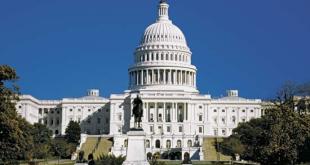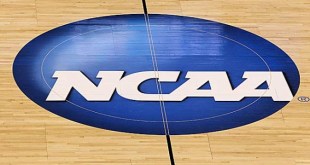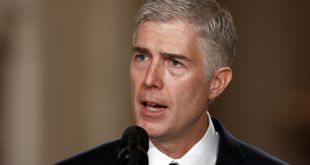It would not be a surprise if those following the legal proceedings of the daily fantasy sports (DFS) world’s two leading operators, DraftKings and FanDuel, were still suffering the effects of whiplash after last Friday’s events in New York. In the morning, a New York state judge ruled that the sites could not offer their contests to state residents while their case against the New York Attorney General was pending. Then in the afternoon, in a stunning reversal of fortune, that ruling was put on hold, permitting the DFS companies to at least temporarily continue to operate in New York.
On November 10, the New York Attorney General, Eric Schneiderman, sent a self-styled “cease-and-desist” letter to both FanDuel and DraftKings, in which he declared their DFS offerings to be “illegal gambling” under New York law and demanded that they stop accepting “wagers” from New York residents. In response, the companies independently filed similar lawsuits seeking, among other things, for a New York state court to declare their DFS operations legal under New York law and enjoin the Attorney General from taking any enforcement actions. I previously wrote about the arguments presented by both sides and the potential impact of the lawsuits.
Last week, the Attorney General struck the first blow in what promises to be a drawn-out litigation process. New York Supreme Court Justice Manuel Mendez ruled in favor of Schneiderman by granting a “preliminary injunction” against the DFS operators. The preliminary injunction would have prohibited FanDuel and DraftKings from accepting entry fees from New York consumers for the games on its websites. Normally a preliminary injunction remains in effect until a trial takes place and a final judgment on the merits of the case is rendered – something which could take months, if not years, to occur.[i]
A preliminary injunction is often described as an “extraordinary remedy” and is usually difficult to obtain. To be granted, a party must demonstrate a likelihood of success on the merits; that it would suffer “irreparable harm” without an injunction; and that the “balancing of equities” favors the granting of the injunction. In this case, Judge Mendez concluded that the payment of entry fees associated with FanDuel’s and DraftKings’ games probably ran afoul of New York’s constitutional and statutory prohibition of gambling. The judge further reasoned that the Attorney General was not required to show irreparable harm – because it was implied in desire to prevent the effects of fraudulent and illegal conduct on the general public – and the balancing of the equities also favored Schneiderman, whose interest in protecting the public, “particularly those with gambling addictions,” outweighed any potential loss of business by the DFS companies.[ii]
Following the court’s decision, DraftKings and FanDuel quickly filed requests for an “emergency stay,” which sought to delay in the interim the enforcement of the lower court’s preliminary injunction. That stay request was heard, and subsequently granted, by Judge Paul Feinman of the appellate division. As a result, the appellate court preserved the operators’ ability to engage in their businesses of providing DFS contests to New York residents while an appeal of Judge Mendez’s earlier order is pending.
While DraftKings and FanDuel are permitted to offer their DFS contests to New York residents for at least another few weeks, perhaps larger concerns remain, as New York is hardly the only state considering the legal status of DFS. If the court’s ruling last week is upheld, while not necessarily binding in other jurisdictions, it may be considered persuasive in the eyes of other courts analyzing DFS under their respective states’ gaming laws. Further, it may also encourage other political leaders and law enforcement officials to undertake a closer assessment of DFS.
That said, the court’s ruling may not have a particularly far-reaching effect. The state court apparently gave little to no consideration to the widely discussed dichotomy of skill versus chance. Both the New York Constitution and New York penal code prohibit “gambling,” which is defined as when a person “risks something of value upon the outcome of a contest of chance or a future contingent event not under his control or influence.” A “contest of chance” is further defined as “any contest, game, gaming scheme or gaming device in which the outcome depends in a material degree upon an element of chance, notwithstanding that skill of the contestants may also be a factor therein.” Most of the arguments by both the DFS operators and the Attorney General centered on whether the DFS contests were prohibited “contests of chance” or “future contingent events” not under participants’ control or influence. Curiously, Judge Mendez’s order was silent on these critical issues.
Even if the court had expressly determined that DraftKings’ and FanDuel’s games were “contests of chance” under New York state law, however, such a ruling might only have limited reach. Under many state anti-gambling laws, the question of whether skill or chance is involved in a game is often important in the context of addressing the legality of fantasy sports. In those states where there is no specific legislation authorizing fantasy sports contests played for money, their legality often depends on the state’s interpretation of the degree of “chance” vs. “relative knowledge” or “skill” involved in the contests at issue. New York is one of only a minority of states[iii] that uses the “material element” test, which asks whether chance is a material factor in determining the outcome of a game, to analyze whether a pay-to-play game qualifies as gambling.[iv] Most states have adopted the “predominant factor” test in their analysis, a more lenient and less subjective test that deems an activity to be one of skill – and therefore legal under most state laws – where more than 50 percent of the result is derived from skill. As such, a New York judge’s ruling that is based off an application of the material element test to its own state law may carry only limited weight in jurisdictions where the predominant factor test is used.
Further, few other state statutes mirror the language contained in New York’s anti-gambling law, in which a contest is prohibited if “something of value” is risked on a future contingent event. To be considered illegal gambling, many states require the placement of a “bet” or “wager.” Multiple federal courts have concluded that entry fees paid to operators for fantasy sports contests are not considered bets or wager. For example, in Humphrey v. Viacom, a New Jersey federal court reviewing New Jersey’s gambling statute held that the entry fees for fantasy sports leagues were not bets or wagers because “(1) the entry fees are paid unconditionally; (2) the prizes offered to fantasy sports contestants are for amounts certain and are guaranteed to be awarded; and (3) defendants do not compete for the prizes.” Humphrey v. Viacom, 2007 WL 1797648 (D. N.J. 2007).
The U.S. Court of Appeals for the Third Circuit also noted that there was a distinct “legal difference between paying fees to participate in fantasy leagues and single-game [sports] wagering” in its analysis of whether the professional sports leagues had “unclean hands” for supporting DFS, while simultaneously opposing New Jersey’s attempts to legalize sports betting. In those states where a “wager” or “bet” is actually required for a contest to be considered illegal gambling, Judge Mendez’s ruling in New York – which distinguished the state’s “something of value” statutory language from the entry fees in the Humphrey case – may be considered inapposite.
Nonetheless, the legal drama in New York will continue to play out, with both FanDuel and DraftKings filing their notices of appeal last week. Regardless of the outcome of the current appeal, per the court, its order last week is not a “final determination of the merits.” Meanwhile, legislators across the country, including in New York, continue to propose and consider legislation that would clarify the legal status of DFS and impose certain regulations, including practical consumer protections and, in some cases, taxes or licensing fees. Throughout the country, the fantasy sports industry is still thriving. While there will likely continue to be obstacles along the way, DFS should continue to emerge as a fun, safe way for people to enhance their sports-watching experience.
[i] The length of time before a trial takes place typically depends on a number of factors, including the amount of pretrial discovery to take place (e.g. interrogatories, document production, depositions, etc.) and the court’s own schedule.
[ii] While it’s unclear exactly how much revenue DraftKings and FanDuel would lose, Eilers Research estimates 12.8% of active DFS players reside in New York, the most of any state in the country.
[iii] Some states that may also use the “material element” test include, among others, New Jersey, Missouri, and Oregon.
[iv] Though the plain language of the state’s statutory definition would indicate that the “material element” test would be applied, courts have often provided that the test “is not whether [the game] contains an element of chance or an element of skill, but which is the dominating element that determines the result of the game.”People v. Li Ai Hua, 885 N.Y.S.2d 380, 383 (Crim. Ct. N.Y. Queens County 2009) (emphasis added); see also People, on Complaint of Love v. Schapiro, 77 N.Y.S.2d 726, 728 (1948) (“A game of skill as interpreted by the courts is one where the player predominantly has control over the circumstances of the game, where the element of luck or chance is subordinate to the proficiency or skill of the player in the determination of the outcome of the game.”).
 The Sports Esquires Putting Sports on Trial
The Sports Esquires Putting Sports on Trial





One comment
Pingback: Sports Law Links - The Sports Esquires